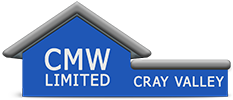
Introduction
The debate over whether to use power poles or underground wiring is a critical decision that impacts functionality, aesthetics, and long-term maintenance. Both options have advantages and drawbacks, making it essential for office managers and architects to carefully consider their specific needs and priorities. In this blog, we will delve into the pros and cons of office power poles and underground wiring to help you make an informed decision for your workspace.
Office Power Poles Pros
Accessibility and Flexibility:
Power poles provide easy access to electrical outlets and data ports, promoting a flexible office layout. This flexibility enables quick rearrangement of workstations and facilitates the addition of new devices or technology.
Cost-Effective Installation:
Installing power poles is generally more cost-effective than underground wiring. The simplicity of their installation can result in significant savings in both material and labour costs.
Easy Maintenance and Repairs:
Power poles allow for straightforward maintenance and repairs. If an issue arises, technicians can easily access and address the problem without extensive disruptions to the office environment.
Adaptability to Changing Technology:
As technology evolves, power poles can be easily upgraded or replaced to accommodate the changing needs of the office. This adaptability is crucial in a fast-paced technological landscape.
Cons
Aesthetic Impact:
Some find power poles less visually appealing, as they may disrupt the overall aesthetics of the office space. Cables running along poles can create a cluttered appearance.
Limited Capacity:
Power poles may have limitations regarding the number of outlets and data ports they can support. This could be a drawback in large office spaces with high energy and connectivity demands.
Underground Wiring Pros
Aesthetic Appeal:
Underground wiring is praised for its unobtrusive nature, contributing to a clean and aesthetically pleasing office environment. Cables are hidden from view, creating a more polished look.
Enhanced Safety:
With cables concealed underground, there is a reduced risk of accidents or damage. This is particularly advantageous in areas with high foot traffic or where equipment is frequently moved.
Scalability:
Underground wiring systems generally accommodate a larger capacity than power poles, making them suitable for offices with extensive power and data needs.
Long-Term Durability:
Once installed, underground wiring systems require less maintenance and are less susceptible to external elements, such as weather conditions or accidental damage.
Cons
Higher Installation Costs:
The initial installation of underground wiring is more expensive compared to power poles. Excavation and specialized equipment contribute to higher upfront costs.
Complex Repairs:
Repairs can be more complex and time-consuming if an issue arises with underground wiring. Locating and fixing the problem may involve excavation, leading to potential disruptions in the office.
Limited Accessibility:
Adding or relocating outlets in an underground system may be challenging, requiring additional effort and cost compared to the ease of modification provided by power poles.
FAQs:
Are power poles or underground wiring more cost-effective for office installation?
Power poles generally offer a more cost-effective installation than underground wiring, as they involve simpler procedures and lower material and labour expenses.
How does the aesthetic impact of power poles compare to underground wiring in office spaces?
Power poles may need to be more visually appealing as they can disrupt aesthetics with visible cables. Underground wiring, on the other hand, offers a cleaner, more polished look.
Is modifying or expanding the electrical infrastructure in an office with power poles easy?
Yes, power poles provide easy access and adaptability, allowing for quick modifications and additions to an office's electrical and data infrastructure.
What safety advantages does underground wiring offer over power poles?
Underground wiring enhances safety by concealing cables, reducing the risk of accidents or damage. This is especially beneficial in high-traffic areas or spaces where equipment is frequently moved.
Can underground wiring systems accommodate a larger capacity than power poles?
Yes, underground wiring systems generally offer greater scalability, making them suitable for offices with extensive power and data needs compared to the potentially limited capacity of power poles.
Conclusion
Ultimately, the choice between office power poles and underground wiring depends on the workspace's needs, budget constraints, and aesthetic preferences. Each option has its merits and drawbacks, and careful consideration of these factors will ensure a well-informed decision that aligns with the long-term goals and functionality of the office environment.
If you want to take a closer look at our range of Power Poles, click here. If you want to contact or find out more about this blog posts author, Dave Dann, click here.
Related Products
